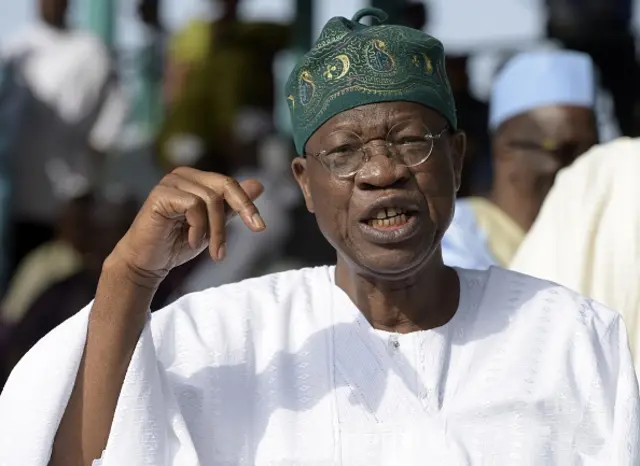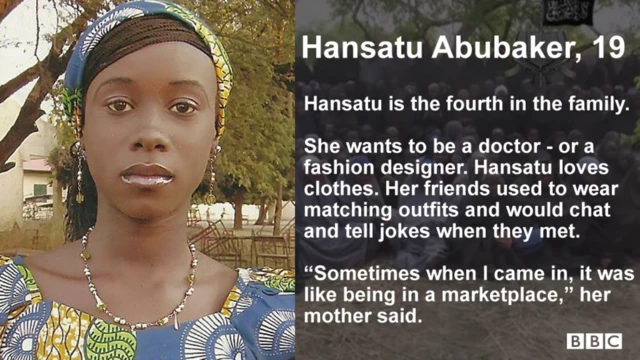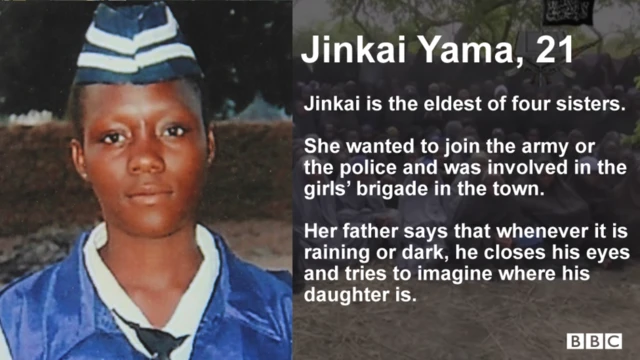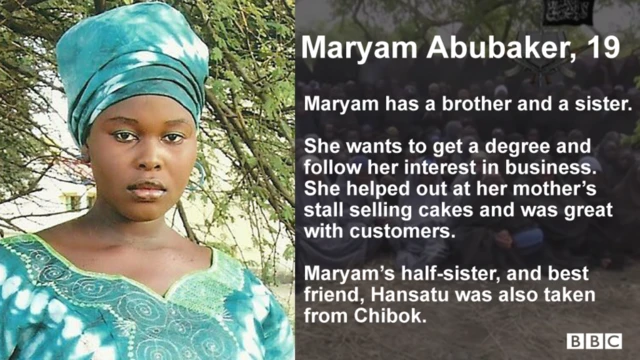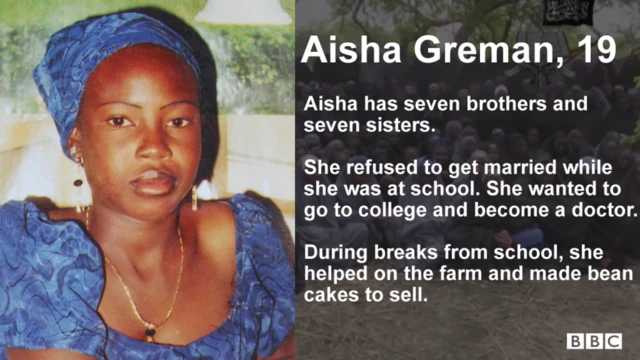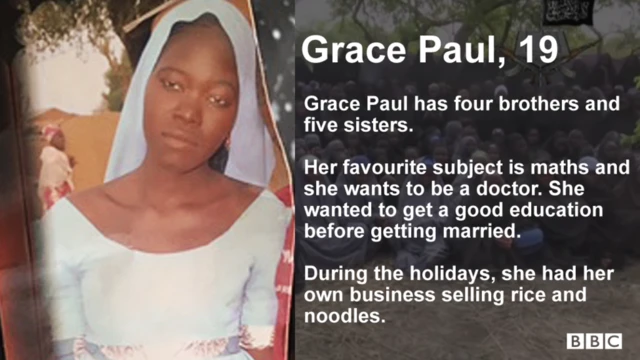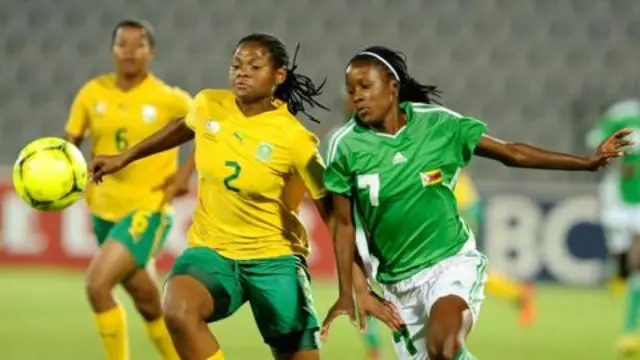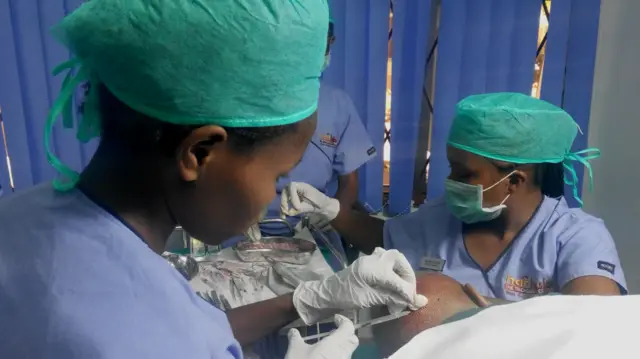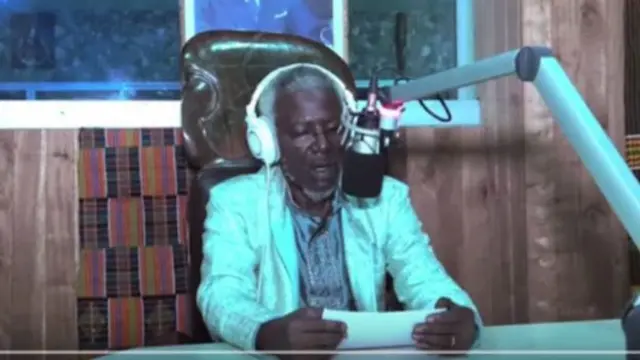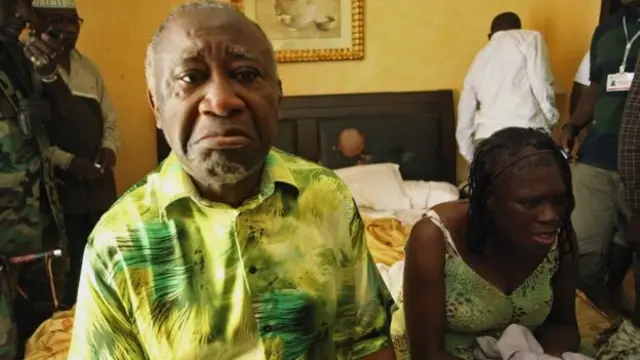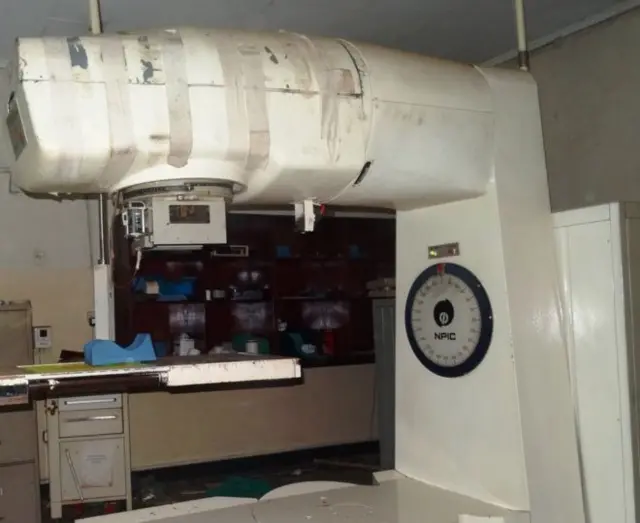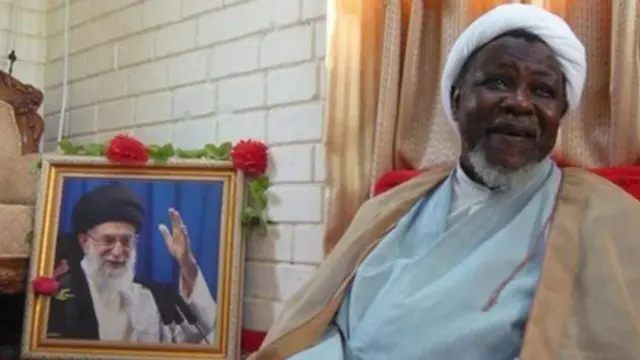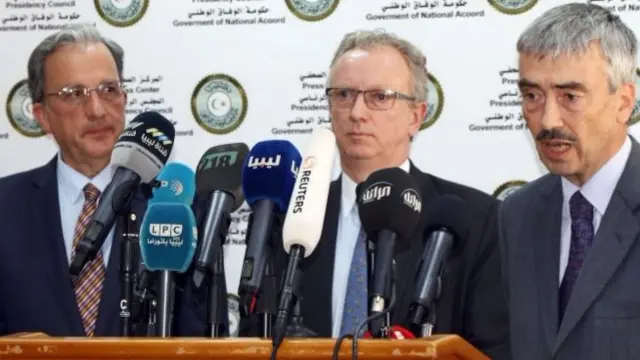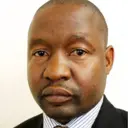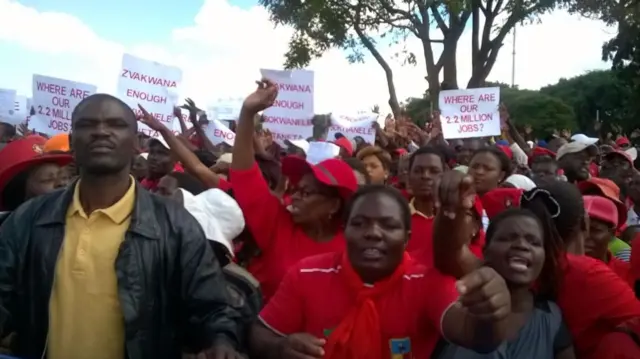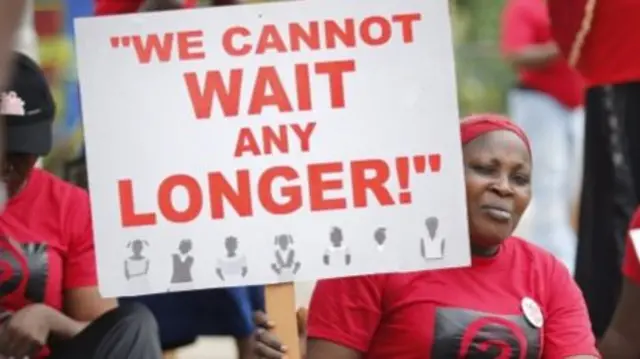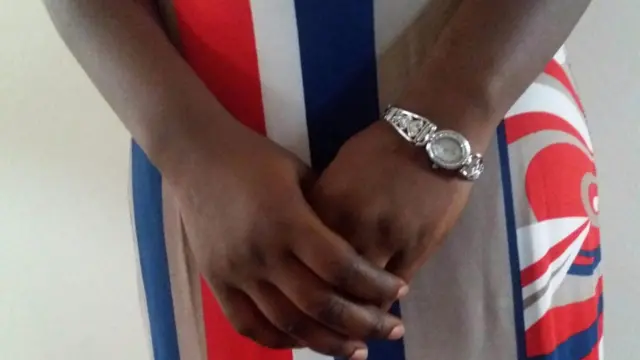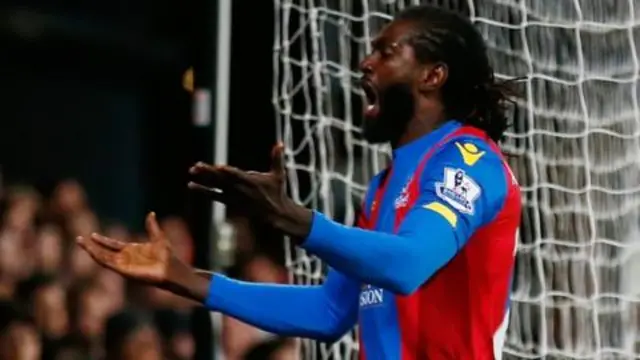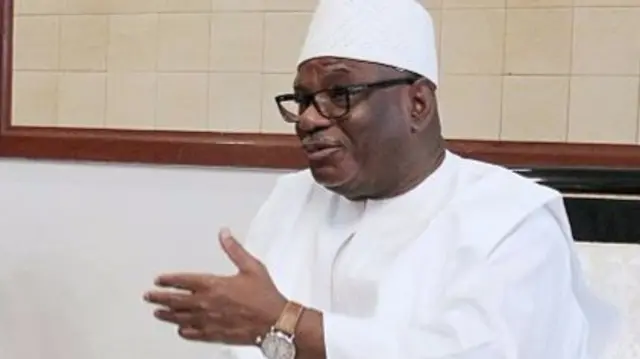Scroll down for Thursday's storiespublished at 18:53 BST 14 April 2016
We'll be back tomorrow
That's all from BBC Africa Live today, on a day when Nigeria marked two years since the abduction of more than 200 girls from their school in Chibok. Keep up-to-date with news from across the continent by listening to the Africa Today podcast or checking the BBC News website.
A reminder of today's wise words:
Quote MessageOne sees all sorts of knives on the day an elephant dies"
A Yoruba proverb sent by Sammy-King Bass in Calabar, Nigeria
And we leave you with photo of a mural painted in Egypt on the walls of houses in the shanty area of Zaraeeb in eastern Cairo, which somehow creates a striking optical illusion:
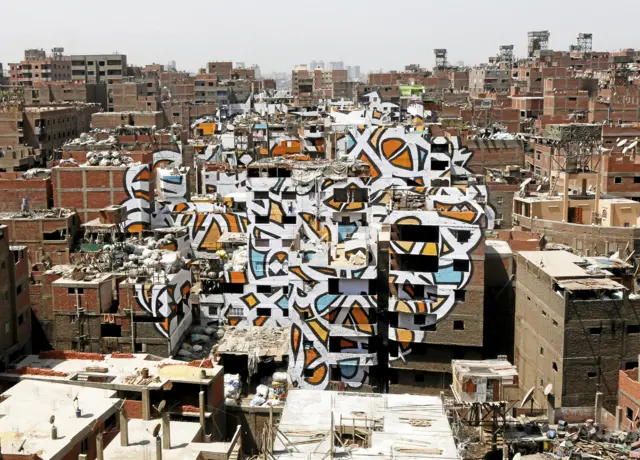 Image source, Reuters
Image source, Reuters